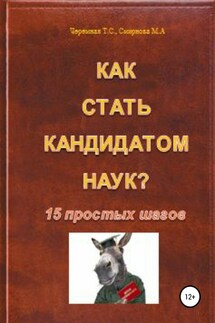Myths in our Life - страница 2
If in a previous opinion about myth the accent was put on its generally cultural functions, in the proceedings of the remarkable Russian philosopher A.F. Losev actuality and personal substance of myth are underlined. Losev supposed that myth was "the reality that is utmost by its concrete nature, intense to the maximum and intensive in the supreme degree. This is utterly essential category of thought and life, distant of any contingency and outrage… It is not a fiction but it maintains the stringent and the most fixed structure and is logically, i.e. first of all dialectically, essential category of consciousness and being in general" [Losev 2001: 36 – 37]. This point of view is the most similar with the comprehension of myth that is considered in the given research where myth is regarded as the reality of special kind, i.e. close to the Losev"s definition: "Myth is life as itself. This is life for mythical subject, with all its expectancies and dreads, anticipations and hopes, with all its real workdays and fair personal interest. Myth is not an ideal being but it is vitally felt and created material reality, and physical till animation, validity" [Ibid., 40 – 41]. For a person with mythological thinking myth is "objectively, materially and sensually created reality being at the same time laid-back from the common process of facts and thus maintaining different levels of hierarchy, different levels of detachment" [Ibid., 61]. Losev considered that "myth is a personal being, or to be more exact, it is an image of personal being, individual form, face of personality" [Ibid., 97].
To understand mythological nature and its essence it is also important to regard the thought of the famous French ethnographer and thinker Claude Levi-Strauss, who wrote: "To understand the character of mythological thinking we should concede that myth is simultaneously endolinguistic and extralinguistic fact… Myth always belongs to the events of the past: "before creation of the world" or "in the old days" – at any rate, "ages and ages ago". But myth"s function consists in the fact that all these events, having existed in the certain period of time, are in existence out of time. Myth explains equally the past, the present and the future" [Levi-Strauss 2001: 216 – 217].
The study of myth as "conformation of culture and mensuration of human soul" plays an important role in culture. Such scientists and philosophers as G.F. Hegel, Z. Freud, C.G. Jung, J.G. Frazer, L. Levy-Bruhl, C. Levi-Strauss, A.F. Losev, E.M. Meletinsky, O.M. Freidenberg and others made an important contribution to myth"s understanding.
The concept of "myth" traces to the ancient Greek mythos that means story, narration, tale, legend. Its Latin analogue is fabula (narration, fable), and "elementary, or primitive mythology is the figurative poetical language that has been used by ancient tribes for clarification of natural phenomena" [Myths 1993: 5].
Many scientists and philosophers devoting themselves to mythology science elaborated their own classifications of myth"s explanation and development. Among modern scientists we can distinguish V.E. Halizev. His opinion about myth, like Losev"s conception, is similar to the author of the given research.
Mythology itself is treated by V.E. Halizev as "overepochal, transhistorical form of social consciousness existing in nation"s life during its history, which is connected with the peculiar way of thought" [Halizev 2002: 128; italics are of the author – N. Sh.].








